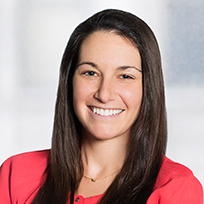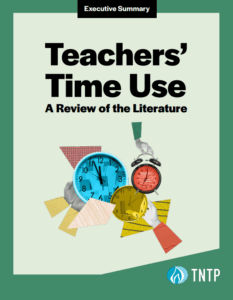Millennials don’t think much of the teaching profession. That’s the big (read: depressing) headline from a new report by Third Way, which examines data from a poll of several hundred high-performing undergraduates and finds that most view teaching as “easy” and a profession that “average” people choose.
I know that there are irreplaceable teachers in every district in the country, and I’m in awe of their abilities in the classroom. But they need company. Third Way’s report offers a loud and clear call to action: If we want to get the “best and brightest” of the next generation into the classroom, we have to modernize the teaching profession and raise its profile.
Third Way cites several factors that have facilitated this declining prestige of teaching: a low bar for preparation and certification, lack of focus on training and retaining teachers who raise student achievement, and lack of career pathways and compensation systems that reward excellence over seniority.
It’s a tough nut to crack, but it’s not impossible. As a teacher preparation provider ourselves, we’ve radically changed our training and certification approach in the last few years from a largely inputs-based model—certifying our new teachers based on their qualifications and on passing the pre-service training—to focusing on actual classroom outcomes. The Assessment of Classroom Effectiveness (ACE) is a multiple-measure evaluation tool designed specifically for first-year teachers in our Teaching Fellows programs. Through classroom observations, student surveys, principal ratings and student growth data, we look at how first-year teachers are performing in their real classrooms, and ensure that only those who are on track to effectiveness get the privilege of teaching for a second year. In the 2011-12 school year, when we piloted ACE, we certified 83 percent of participating teachers. Twelve percent were put on extension plans, allowing them to continue to a second year with additional support, and 5 percent were not certified.
Holding new teachers to such a high bar is different from the approach of most current teacher preparation programs—and indeed, from our own previous model—where certification is almost guaranteed with enrollment. As the authors of Third Way’s report point out, this is unlike any other profession that demands a specialized skill set.
Teaching is certainly not the only profession that requires significant upfront costs and time from prospective employees. We require medical students to master a rigorous set of standards and skills, for example—and to prove their abilities with real patients, under the guidance of more experienced doctors—but prospective teachers are often forced to spend precious time and money on training programs that make them no more likely to improve student outcomes. This is a nuisance at best. At worst, it can turn high-quality applicants off of considering the profession.
Professions like medicine and law benefit from strong competition for the best training providers, and where the market forces are restrained—as in medicine, where results are hard to isolate—the barriers to entry and high bar for certification push providers to focus on meaningful training that both prepares candidates for the work and weeds out those who can’t cut it. If anyone with a couple years and enough money for tuition could become a doctor in this country, how would you feel about your next doctor’s appointment? We won’t permit the medical field to be populated by doctors who haven’t been meaningfully trained or passed a rigorous certification process. But unfortunately, we’ve been all too complacent about allowing the teaching profession to be just that. We know teaching requires so much more, and the stakes are just as high as they are in medicine—indeed, great teachers are saving lives in this country every day.
For too long, we’ve explained this problem away as a numbers game—after all, we need far more teachers than doctors, lawyers, and accountants combined. But that’s a poor excuse for setting low standards for entry and continuation in the profession that most affects our future as a country. The high number of teacher vacancies that are projected in coming years—as many as 3 million—fills me with both concern and possibility. We have an unprecedented opportunity to redesign the way we view the profession by breaking out of “the box” to take full advantage of our top talent and new technology. Across the country, new evaluation systems are now able to differentiate teaching performance and identify our highest performing teachers. Leveraging their strengths—and compensating them for them—coupled with new technologies and reimagined teacher roles, can expand top teachers’ reach and ensure all of our schools are able to deliver a world-class education.
Teaching looks the same as it did 100 years ago. It’s time for a new vision. As we recruit new teachers, we talk to a lot of talented folks, both young people and prospective career-changers, with interest in the field—but a lack of faith that teaching is a profession with the kind of growth (and, indeed, financial) opportunities to keep them engaged over the course of their career trajectories. If we want to get and keep top talent in the profession, we have to address these shortcomings. Third Way offers some promising solutions, like providing immediate student loan assistance to teachers who pass a more rigorous certification process, and rethinking pension portability. The authors challenge us to break what they call the “cycle of mediocrity” and move to a “cycle of distinction.” It’s easier said than done, but it’s up to all of us to change the constructs we’ve created and treat teachers as the professionals they are.








